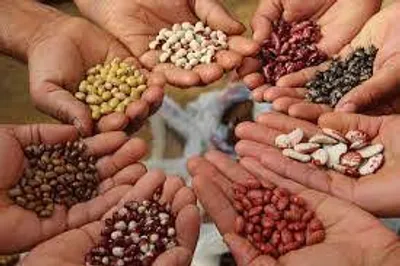Ph.D. in Seed Science & Technology: Introduction, Admission, Registration, Eligibility, Duration, Fees, Syllabus 2024

Introduction:
A Ph.D. in Seed Science & Technology is an advanced academic program aimed at cultivating scholars and researchers who will lead innovation in the agricultural sector. The program provides in-depth knowledge of plant genetics, seed biology, biotechnology, and the principles of seed production, conditioning, and quality control. Scholars will explore the interdisciplinary aspects of seed science including molecular biology, seed pathology, and biometrics, which are critical for addressing food security and sustainability. Research is often conducted in state-of-the-art facilities and in collaboration with industry leaders, positioning graduates at the forefront of agricultural advancements.
Admission Process:
- Application Submission: Fill out an online application form.
- Academic Records: Provide transcripts from undergraduate and master's programs.
- Letters of Recommendation: Submit 2-3 recommendations.
- Statement of Purpose: Write a comprehensive statement about your research interests.
- Research Proposal: (If required) Present a proposal for potential research projects.
- Interview: Participate in an interview with program faculty.
Eligibility:
- A master's degree in agronomy, plant science, biotechnology, or related fields.
- Research experience in a relevant area of seed science.
- Demonstrated academic excellence.
Completion Time:
Completing a Ph.D. in Seed Science & Technology typically ranges from four to six years. The initial phase focuses on coursework and laboratory skills, ensuring a robust foundational understanding of key concepts. The subsequent years are primarily dedicated to original research, leading to a dissertation that offers novel insights into seed science. Time to degree completion can vary based on research complexity, publication goals, and any teaching responsibilities undertaken by the candidate.
Career Opportunities:
- Research Scientist: In government, academia, or industry.
- Agronomist: Specializing in seed technology.
- Biotechnology Firms: Leading genetic engineering projects.
- Academic Faculty: Teaching and conducting research.
- Policy Advisor: For agricultural and food security policies.
Syllabus:
- Advanced Genetics and Plant Breeding
- Seed Pathology and Biotechnology
- Statistics and Experimental Design
- Seed Physiology and Production
- Research Methodologies in Seed Science
Internship Opportunities:
- Research internships with agricultural biotech companies.
- Practical experience with government research labs.
- Field trials in collaboration with seed production companies.
Scholarship and Grants:
- Research assistantships offering tuition waivers and stipends.
- Fellowships from agricultural foundations.
- Grants for specific research topics, like sustainable seed systems.
- International scholarships for studies in seed science.
FAQs:
What background do I need to apply?
A related master's degree and research experience.
Does the program include hands-on training?
Yes, laboratory and fieldwork are integral parts of the program.
What are the funding options available?
Assistantships, fellowships, and grants are commonly available.
Can I tailor my research area?
Yes, within the scope of seed science and technology.
